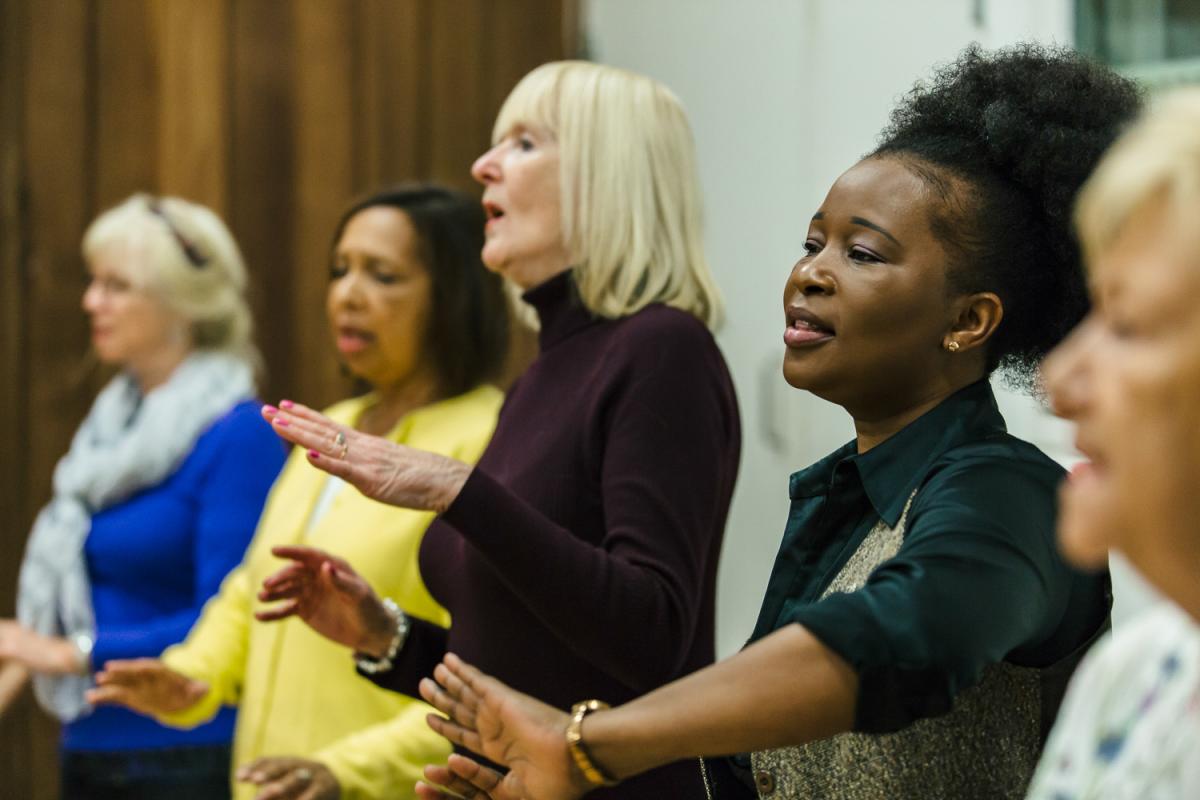
The Culture, Health & Wellbeing Alliance, alongside partner Nicola Naismith and a panel of judges, had the privilege of selecting winners for the CHWA Practising Well Award 2025. Now in it’s fourth iteration and to reflect a changing creative health landscape, this year saw the creation of subcategories, acknowledging equal importance to both staff and freelancer support.
Shortlisting projects for this award brought to light the increased focus on and consideration of practitioner care when designing and delivering creative health projects. CHWA analyzed the application data to draw out commonalities, themes and focus areas, and were really excited by the levels of innovation and a person-centered approach to the work.
Questions of equity and of addressing ‘who gets to be an artist’ were also either explicit or implied in a number of the strongest applications. By scaffolding support options and offering a menu of choice to remove barriers to access, such as paid travel, reflection time or child care, projects are ensuring a more varied pool of lived experiences can make it into the room, and stay there for longer. This was particularly noted in the highly commended project, MOTHEROTHER, led by Sue Loughlin.
Another key element in breaking down barriers to access was ensuring wellbeing offers were free, and that payment staff and freelancers were paid for their time – this included time spent reflecting, evaluating and feeding back. This removed any pressure on earnings for those wanting to engage in development opportunities, access supervision or contribute to the further development of future projects. In their Radical Gifting project, shortlisted organization People United recognized the time commitment needed to plan, process and wrap up projects with care and consideration, and ensured that everyone felt financially able to contribute to the process.
The most notable and effective submissions operated from a place of openness and pro-activity. Detailing all options at the first point of contact took pressure off staff or artists to articulate their needs before knowing what a project might bring up, and meant they didn’t have to negotiate this further down the line when they may be feeling vulnerable. Good practice felt embedded into existing systems and cultures, rather than only being addressed when something had gone wrong. Highly commended organisation Changing Relations stood out for demonstrating mutual care throughout all stages of a project, and at all staff levels, demonstrating a deep commitment to the wellbeing of both freelancers and staff.
Whilst many of the applications talked about wellbeing support more generally and informally, the most compelling applications gave specific examples of clear offers and tangible processes that helped freelancers in particular feel valued and heard. The introduction of the UCLH Arts and Heritage Teams Care Charter, for example, legitimized and gave voice to the impact of creative work in hospital settings on practitioners. The number of nominees who recognized the risks around practitioner and staff loneliness or burnout was also heartening to see. Bradford Culture Companys design and creation of their designated wellbeing space encourages staff to step away from their desks, take breaks and reconnect with themselves or each other in a meaningful way.
Ensuring the offer is informed by practitioner needs, and remains relevant over time was a key consideration for CHWA when shortlisting. Co-produced approaches help ensure that care is something that is shaped with you, rather than decided by someone else and done to you. In one of our winning projects, How Ya Doing?, Tracy Breathnach and team consulted with artists across Wales to shape the project in year one, and subsequently revised their approach in the following years based on evaluations and feedback.
For CHWA, the most encouraging development for 2025 was several exciting projects where the impact of the wellbeing offer extended beyond the staff or freelancer, and influenced the wider ecosystem of creative health as a whole. Through their mentoring practice, Lady Kitt helped mentees feel their practice was more sustainable, and directly influenced how they planned and delivered future exhibitions with accessibility in mind. Similarly, award winners Next Door But One's dissemination of their care based approach, through their university partnerships, conference speaking, and advocacy work with PIPA, helps influence and inspire emerging creative health artists and encourage existing leaders to consider workforce wellbeing as an ongoing and evolving priority.
We’re really reassured by this years nominations, and look forward to seeing how conversations of practitioner wellbeing progress.
If you’ve been inspired by the CHWA Awards and want to start your own project, we recommend you look at the Creative Health Quality Framework.
For more information on our shortlist, winners, judges and the previous awards click here
